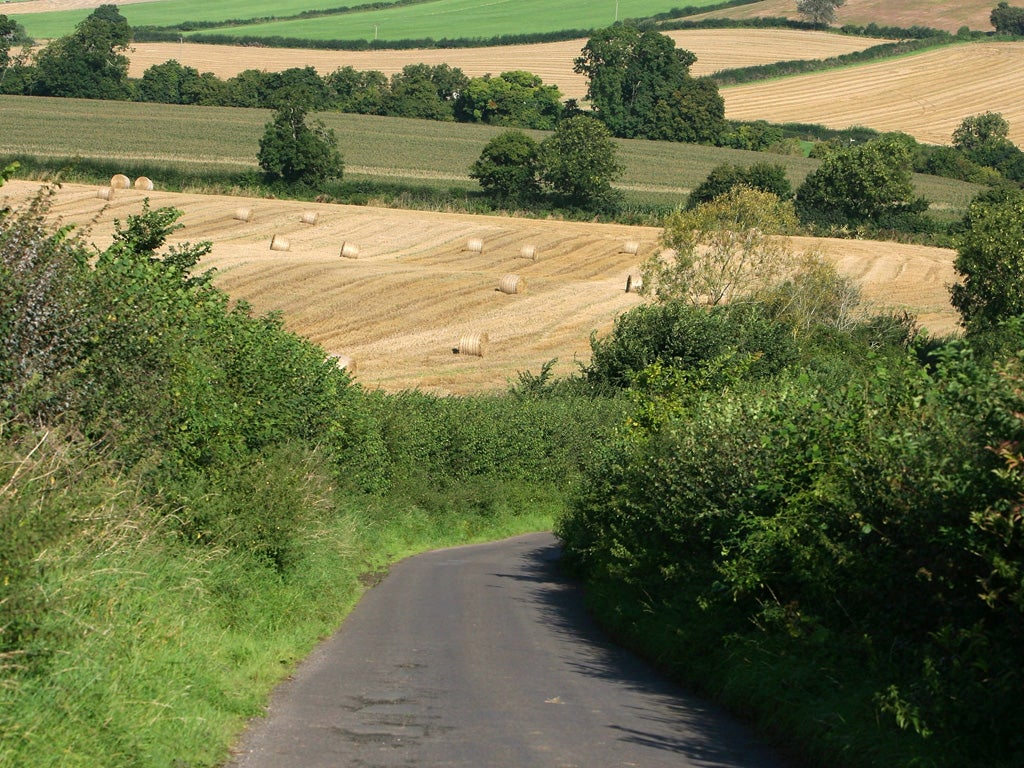The countryside’s children are being betrayed
While the government's drive to improve education has transformedschools in London's inner-city, young people in rural areas are largely missed out

Your support helps us to tell the story
From reproductive rights to climate change to Big Tech, The Independent is on the ground when the story is developing. Whether it's investigating the financials of Elon Musk's pro-Trump PAC or producing our latest documentary, 'The A Word', which shines a light on the American women fighting for reproductive rights, we know how important it is to parse out the facts from the messaging.
At such a critical moment in US history, we need reporters on the ground. Your donation allows us to keep sending journalists to speak to both sides of the story.
The Independent is trusted by Americans across the entire political spectrum. And unlike many other quality news outlets, we choose not to lock Americans out of our reporting and analysis with paywalls. We believe quality journalism should be available to everyone, paid for by those who can afford it.
Your support makes all the difference.There are times, if you happen to reside some way from our great conurbations, when it can feel as if one is living in a parallel universe. Out there, in the exciting world of news, important stories are breaking. A high-profile marriage is (or isn’t) in trouble. Two tennis players are rowing about their boyfriends. The police have done something wrong again.
Searching for a slightly less urban view of national life, one might find the controversy over whether the Queen guitarist Brian May should be allowed to discuss the badger cull on Springwatch, or watch the new series of fantasy house-buying TV programme Escape to the Country.
Then, just occasionally, the reality of life away from cities and large towns can be glimpsed in the national media. Over the past few days, we have learned that by far the most educationally deprived children in the country are poor, white and live in remote rural communities. More evidence of the exodus of young people from the country into towns has emerged. Charities have revealed that small farmers are going out of business at an unprecedented rate. The Government has provided its response to the problem of rural decline. The Planning minister Nick Boles has proposed that it is time to build housing estates on “low-quality, environmentally uninteresting fields” – if necessary on the Green Belt.
It is, of course, a perfect Tory solution, encouraging the making of money in the building industry rather than looking at the real crisis, which would require both effort and investment to resolve.
Even for those who have argued for some time that the countryside is getting a poor deal from central government, the latest Ofsted report, published last week, will be a shock. It reveals that, in rural and coastal communities, a lack of investment, hopeless schools and an inability to attract good teachers have produced a situation where “unseen, disadvantaged children remain unsupported and unchallenged”.
The inner-city schools which, 20 or 30 years ago, were in crisis, are now performing well. It is rural schools which have been neglected and ignored down the years.
The comparative figures tell a grim story of educational inequality. In Tower Hamlets, there may be a problem of deprivation, with 54 per cent of secondary-school children receiving free school-meals, but, of those children, almost 60 per cent achieve five or more GCSEs with grades from A* to C. The equivalent figures in, say, Cornwall and Essex, reveal a smaller percentage of poor children (12.2 and 11 per cent receiving free meals), but appallingly low equivalent GCSE results, at 34.2 and 34.4 per cent – only just over half that of the inner-London borough.
This betrayal of children who happen to have been born far away from cities is easy to explain. There is little concern or investment from central government. It is not just the lack of housing in some areas that is the problem but a general air of decline and indifference – shops and council facilities closing, poor broadband, few business opportunities – which drives families to the cities where money is being spent and made.
The Government solution seems to be to make the countryside more suburban, to build over its green areas so that the one unquestioned value that it offers, that of space and air, is reduced. In this typically utilitarian, business-led approach, country people are viewed in the same way as Nick Boles’s fields – low-quality, environmentally uninteresting.
The countryside has the potential to offer a good life to those – young and old – who live there, but it needs the support and engagement of those in London who make the big national decisions. The problem is not one of boring fields, but of unimaginative politicians and civil servants.
Winner’s strange legacy
No doubt this weekend’s memorial service for Michael Winner was a moving occasion for his friends, but for many of the rest of us it will confirm what a strange business fame can be.
This man, an undistinguished film director, a name-dropping restaurant critic and occasional star of TV commercials, achieved an odd sort of popularity by being unpleasant.
At the memorial, his friends revealed that it was precisely the fact that he was a cantankerous bully which made him so utterly adorable. Sir Michael Caine explained that when he bullied waiters and friends, he was “testing how far he could go before you disliked him”. He was “a complete pain”, Sir Michael Parkinson fondly recalled, and various other knights of the realm were on hand to reminisce about his loveable ghastliness.
Is that the lesson we should all take from the rather strange life of Michael Winner – that the more you bully and whinge, the more you will be admired? I rather hope it doesn’t catch on.
Join our commenting forum
Join thought-provoking conversations, follow other Independent readers and see their replies
Comments